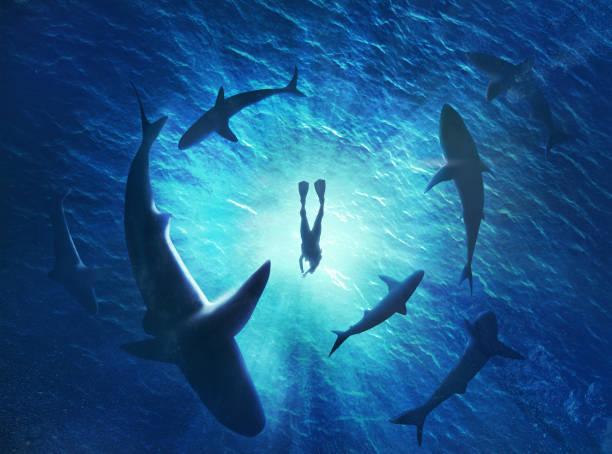Sharks reign supreme in our vast oceans, with populations potentially reaching billions. Sailors dubbed them "sea dogs" centuries ago to reflect their intimidating presence. Today, scientists marvel at the diversity within the 400 known shark species, from the mighty to the minuscule, like the dwarf lanternshark, barely stretching seven inches long. Sharks, being elasmobranchs, are an essential part of the delicate balance of life, but underneath their fearsome exterior lurks a more sinister story. Sharks, although being represented as marine villains, are critical components of the complex web that sustains marine ecosystems. Join us on a journey below the depths to discover the fascinating lives of these incredible creatures, as well as their significance and profound links to the aquatic world.
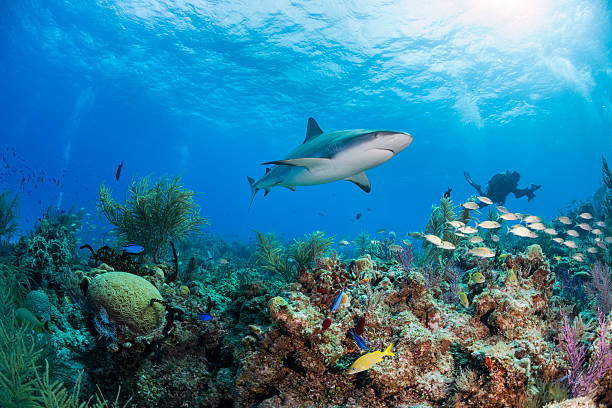
The Apex Predators:
Sharks, being apex predators, dominate many ocean habitats. Their existence regulates prey species populations, preventing them from overgrazing valuable resources like seagrass beds and coral reefs. Sharks have an indirect influence on the structure and variety of entire ecosystems because they manage the availability of prey. According to studies, shark removal can have a cascade impact, causing imbalances that can collapse marine environments.
Keystone Species:
In addition to being the top predators, sharks are keystone species in their specific ecosystems. A keystone species is one that, in spite of its abundance, significantly affects its environment. Sharks impact other species' behaviour and distribution, spreading across the food chain due to their predatory tendencies. For instance, sharks can affect prey species' behaviour by influencing how they forage or use their habitat in response to the possibility of being eaten.

Ecosystem Engineers:
Beneath their terrifying reputation, sharks emerge as protectors of the ocean's delicate web of life. Their impact, however subtle, is substantial, shaping the aquatic world in ways that maintain a vivid tapestry of existence. Take the elegant reef shark, for instance, whose delicate control over fish populations protects the core of coral reef environments. Sharks play a silent but crucial role in this intricate dance between predator and prey, tying the threads of marine life together to create a vibrant tapestry that will last for many years.
The Importance of Biodiversity:
Sharks are an important component of biodiversity, resilience, and equilibrium in the enormous span of our oceans. Since they are the top predators, they maintain the fragile connections between species in the marine food web, preventing any one species from controlling all the resources and promoting a diverse range of life. Through the management of prey populations, sharks facilitate a harmonious coexistence that supports a variety of species in their natural environments. In turn, this biodiversity serves as the foundation for marine ecosystems, allowing essential processes like carbon sequestration, nitrogen cycling, and coastal protection to occur in a balanced manner.
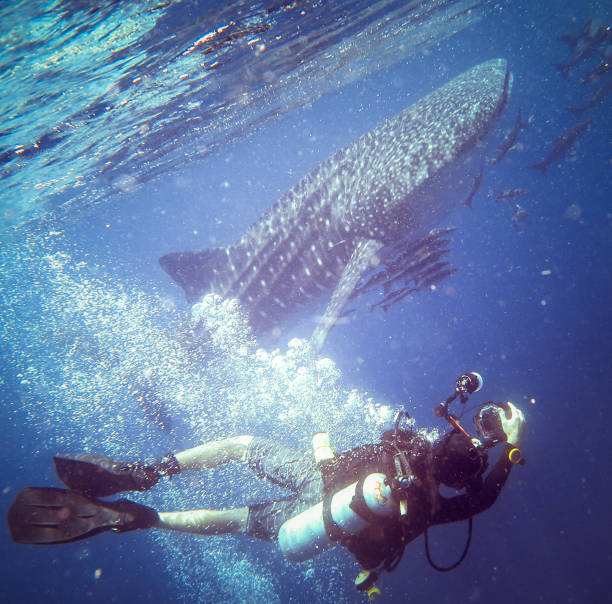
Threats to Shark Populations:
Sharks play a vital role in ecological balance, but they also face several risks from human activity. The primary factors contributing to the global decline in shark populations are habitat destruction, bycatch, overfishing, killing them for human benefits, and climate change. Targeted shark slaughter, mostly driven by the desire for shark fins and the trade in shark fin soup, frequently results in declines in shark populations and ecological problems. The loss of important habitats like mangrove forests and coral reefs makes many shark species even more vulnerable.
Conservation Efforts:
Sharks play an important role in the complex web of marine life, with their presence linked with the health of entire ecosystems. There are global initiatives in place to protect these recognizable sea lions. Through international agreements, marine protected areas, and fishing regulations, we strive to shield shark habitats and alleviate the strain on endangered populations. Beyond legislation, however, what genuinely promotes respect for these amazing animals and their ecosystems is the public understanding raised by public awareness campaigns and ecotourism projects. We set out on a journey together to protect not just sharks but also the ocean's fundamental qualities.
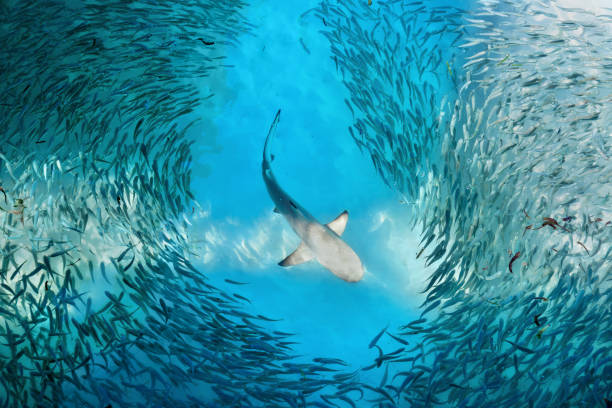
To address these challenges, coordinated conservation efforts are essential. Shark populations can rebound by establishing marine protected areas (MPAs) with fishing restrictions. While guaranteeing the long-term sustainability of fisheries, the implementation of sustainable fishing techniques, such as bycatch regulations and prohibitions on shark finning, can help to lessen pressure on shark populations.
The creation of respect and understanding for sharks heavily depends on public knowledge and education. By dispelling myths and misconceptions about these creatures and emphasising their ecological value, we may increase support for shark-protecting conservation efforts and foster a culture of marine stewardship.
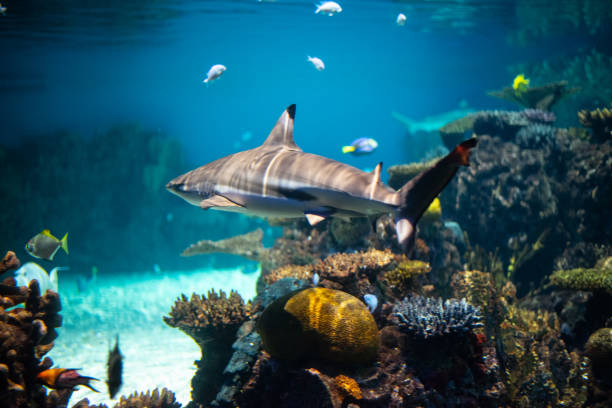
Conclusion:
Global conservation initiatives have been started to protect these iconic predators because of the recognition of the shark's critical role in marine ecosystems. International agreements, marine protected areas, and fishing regulations are all intended to reduce fishing pressure on vulnerable shark populations while also preserving the ecosystems. Public awareness efforts and ecotourism projects also play an important part in protecting shark conservation by instilling respect for these animals and their environments.
There are several chances to volunteer to support shark conservation. You can support sustainable fishing methods, participate in beach clean-ups with neighbourhood organisations, or help with studies tracking shark numbers. Contributions to aquariums and marine conservation organisations also serve to inform the public about the significance of sharks. In the end, your participation contributes to the preservation of these important predators and their marine environments for upcoming generations.
